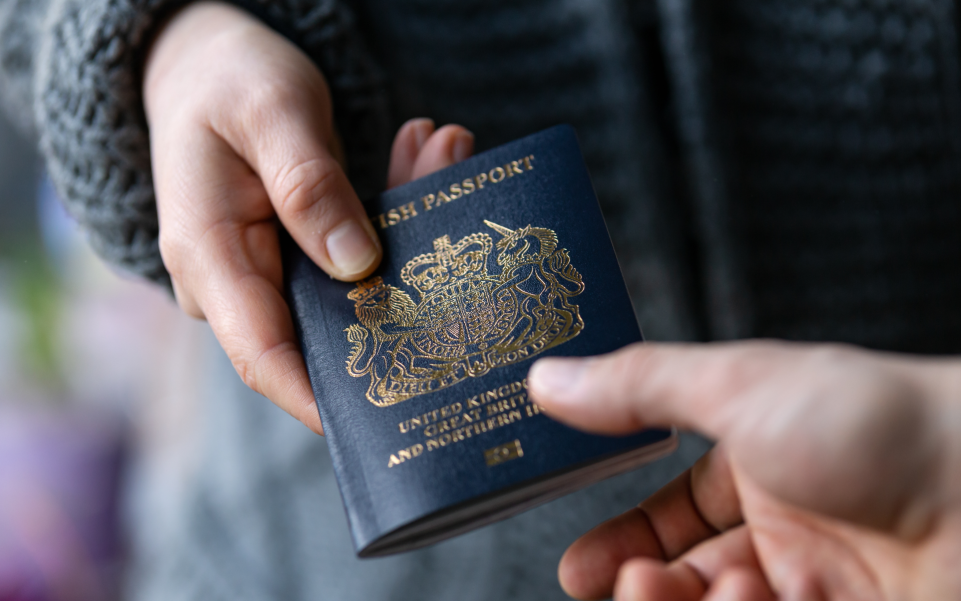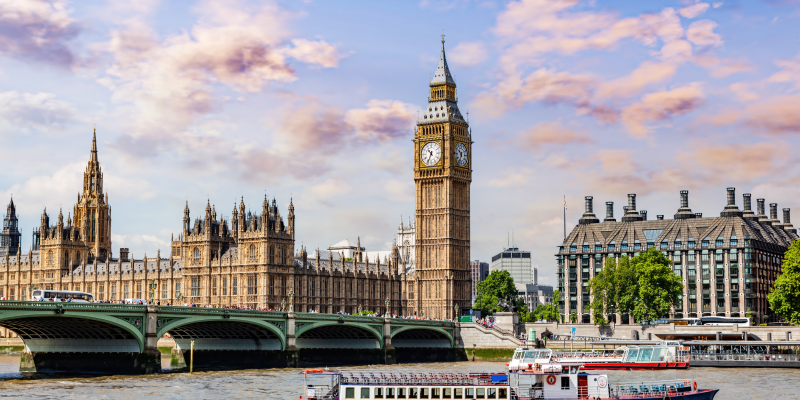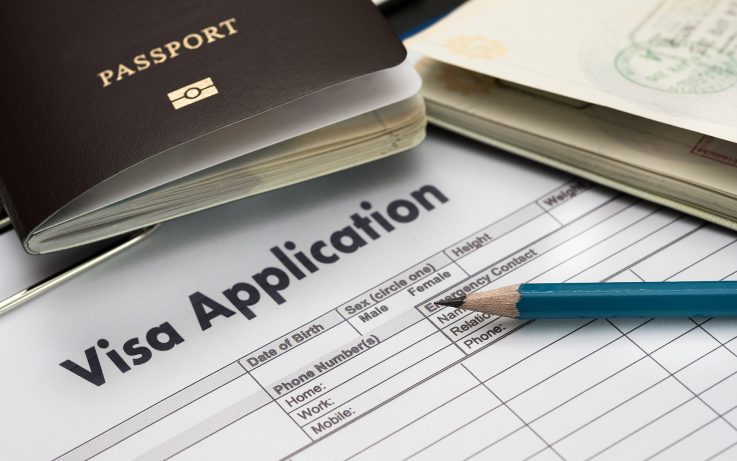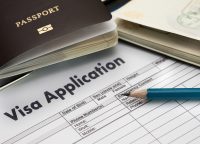How to Get a UK Passport

The UK is one of the most attractive countries for immigration. People from all corners of the world come here for economic stability and prosperity, new career opportunities and good education. Immigrants are also attracted by the country’s diverse culture and rich history.
The UK economy is the sixth largest in the world in terms of nominal GDP. According to the Global Financial Centres Index, London is the second most important financial centre on the planet. The UK is home to the headquarters of many international companies such as Unilever, HSBC, AstraZeneca and BP. They offer a variety of career opportunities in areas such as finance, technology, medicine and education.
UK citizenship allows you to be part of the country’s rich cultural and historical tradition. With a passport you get the right to participate in public life in the UK, to vote in elections at different levels and to be elected yourself.
If you are just thinking about immigrating to the UK, this guide will give you a step-by-step plan to follow before the desired document is yours. If you are already a resident of the United Kingdom and are thinking about becoming a citizen, this article will help you make a decision and explain how to become a British citizen and a compatriot of Shakespeare, Isaac Newton and Charles Darwin.
Benefits of UK Citizenship
British citizenship opens up a whole range of opportunities for its holders:
- Firstly, it’s the ability to reside in the country without restrictions. Without worrying about visas or residence permits, you can try your luck to see the Loch Ness Monster, visit Scottish castles and Welsh National Parks and, of course, explore all the sights of London and the surrounding area. But, most importantly, citizenship provides peace of mind and security, as well as the opportunity to build plans for your life in the UK without fear of losing your residence permit;
- Ability to travel without visas. UK citizens can travel to more than 170 countries without having to apply for entry clearance in advance. These include Schengen area, Commonwealth countries (including Canada and Australia), the USA, Japan, South Korea and Hong Kong. It would be much easier to list the countries where you will need to apply for a visa (there are only 25 of them)! These international travel opportunities allow to do business and work in other countries;
- Citizenship gives you access to the social security system. Along with your passport, you are entitled to free healthcare through the National Health Service (NHS). British medicine is considered to be one of the most advanced and effective in the world;
- In addition, citizens have the opportunity to participate in elections and vote, which allows them to influence the political life of the state and participate in the democratic process.

How do I Become a British Citizen?
There are two main ways to become a subject of the United Kingdom.
1. Citizenship by birthright
The first and relatively straightforward is obtaining citizenship status by birth.
If you were born outside the UK, you can usually only claim citizenship if one of your parents is a British citizen.
If you were born on British soil, you can get citizenship in the following cases:
- one of your parents was a British citizen at the time of your birth;
- at the time of your birth, one of the parents had permanent resident status or was living in the country on a visa with the right to apply for permanent residence;
- you were born before 1 January 1983.
However, the granting of citizenship is automatic only for children of British citizens, in other cases it is necessary to apply and attach documentary evidence.
2. Naturalisation
You can also become a citizen by choice. This option is suitable for those who want to become part of British society and receive all the rights and responsibilities that come with being a citizen after a long period of residence in the country. The basic conditions for application include:
- Age: The applicant must be at least 18 years of age;
- Residence: You must have been legally resident in the UK for at least 5 years, or 3 years if you are married to a British citizen. However, the total number of days you have been absent from the country must not exceed 450 days in 5 years or 270 days in 3 years (for spouses of British citizens). In addition, there must not have been more than 90 days spent away from the UK in the previous year before you apply;
- Permanent Residency Status: The applicant must have held ILR (Indefinite Leave to Remain) status for at least 12 months prior to application. Spouses of UK citizens may apply immediately after obtaining ILR;
- Language proficiency: You must demonstrate English language proficiency of at least B1 level according to CEFR (Common European Framework of Reference for Languages) standards;
- Life in the UK test: You must successfully complete a test that assesses your knowledge of the culture and history of the UK;
- Good reputation: The applicant must prove that they have no criminal records in UK and provide references from at least two UK nationals.
What is ILR?
ILR or Indefinite Leave to Remain: this is the name for permanent residence in the UK. Obtaining this status means that a person is no longer subject to time limits on residence and can live and work in the country without having to renew their residence permit. Permanent residence allows foreign nationals to stay in the UK indefinitely.
But there are differences between an ILR card and a British passport. Citizen status allows you to vote, freely leave the United Kingdom for any length of time. An ILR holder can lose their rights if they spend more than two years outside the country or if the authorities decide that their actions threaten national security.
ILR is an important status for those who want to live and work in the UK permanently, and a key step in the naturalisation process, but it does not confer all rights and privileges.
How do I get ILR in the UK?
Let’s look at the main steps on the way to permanent residency:
1. Minimum length of stay
To have a right to apply for permanent residency in the UK, you, first, must have lived in the country legally for three to five years.
There are several types of visas in the UK that entitle you to permanent resident status. The main visa categories include:
- Skilled Worker Visa allows skilled professionals to work at the invitation of an employer. After five years of legal stay in the country, the foreigner, his wife and children can apply for permanent residence;
- Family Visa – a visa for spouses or partners of UK citizens or permanent residents, which allows you to claim ILR after five years of residence;
- Student Visa. Although the Student Visa does not provide a direct route to ILR, graduates can switch to a working visa via the Graduate Route, which allows you to work in England and, after living legally for 10 years, obtain ILR;
- The Innovator Founder visa also leads to ILR status. Foreign businessmen must fulfil certain financial requirements and conditions, and if their start-up is successful, they can obtain permanent resident status after 3 years;
- The Global Talent Visa is suitable for professionals who are recognised in their field. After three to five years of residence in the UK on this visa you can apply for permanent residence.
Each type of visa has its own unique requirements and conditions, so it is important to research your visa carefully before applying for ILR.
2. Exams
The second step is to prove that you have at least a B1 level of English. This test is not required for people over 65 years of age, citizens of countries where English is an official language, or those who have a degree from a recognised university in the UK. If you have already proved your language skills when applying for a long-stay visa, you do not need to take the test again.
In addition, you must take the Life in The UK test, which reviews your knowledge of British history, culture and traditions. The results of these tests can be used later in the naturalisation process.
3. Submitting the documents and paying the fee
You can do it online. The questionnaire must contain accurate information. Prepare a package of documentary evidence:
- identification document;
- documents confirming your right to stay in the UK;
- English language and culture test results;
- work contract if you are applying for a residence permit from a skilled worker visa;
- additional documents depending on the type of your visa.
The application fee is £2,885. This includes the fee for collecting biometric data. However, you will have to pay extra if you want to choose a convenient time for your visa to the centre.
The processing time is up to 6 months, but it usually takes around 8 weeks. For most types of visas, it is possible to use an urgent processing service for an additional fee. In this case a decision will be made in 1 or 5 days. Please note that the fee paid is non-refundable in case of denial.
4. Getting a result
The result of a favourable decision on your application is ILR status, which takes you out of immigration control and allows you to remain in Britain without restrictions. After one year as a permanent resident, you can begin the naturalisation process. If your spouse is a British citizen, you can start the citizenship process as soon as you receive your ILR.

How does the naturalisation process work?
The process of obtaining citizenship in the UK can be divided into several stages:
- Make sure you meet the eligibility requirements;
- Prepare the necessary documents:
- all valid passports;
- proof that you have had ILR for more than 12 months;
- certificates showing that the required tests have been passed;
- letters of recommendation from two UK nationals;
- documents proving your residential address;
- a marriage certificate if you are applying as the spouse of a UK citizen;
- birth certificate (when granting citizenship to a child).
- Fill in the form and apply on the government website. Once you have submitted your application and paid the fee, you will be provided with an ID number which you can use to upload supporting documents to the portal and make an appointment for biometrics. The cost of citizenship is currently £1,630.
- Wait for a decision: After sending the application, you will have to wait for the result. The processing time is up to six months. However, the application is usually processed for about 3 months.
- Naturalisation ceremony: If your application is approved, you will be invited to a swearing-in ceremony where you will receive a certificate of citizenship. It is when you take the oath that you become a British citizen.
- Obtaining a passport: Once you have received your oath certificate, you can apply for a British passport, which takes about 2 weeks to process.
FAQs about United Kingdom citizenship
Is it possible to obtain ILR or UK citizenship by investment?
The Investor visa is not currently available. It has been replaced by the Innovator Founder visa, which is designed for foreign entrepreneurs planning to set up and develop their business in the UK. To apply for this type of visa you need to invest money in a start-up (you cannot invest in an existing business). In addition, you must first obtain ILR after three years of residence in the country. You can apply for citizenship only after five years of living in the UK.
Will I have to renounce my previous citizenship?
No, UK residents are allowed to hold a second passport from another country. It is important to research the law in your home country and know whether dual citizenship is allowed there.
What is the Life in the UK test?
This is a test that assesses your knowledge of British culture, history and government. It consists of 24 questions that take 45 minutes to complete. You can study using a specially designed study guide available on the official government website. You can also test your knowledge by taking practice tests, which can be found online. You must score 75 per cent or more to pass the test. You can retake the test and there is no limit to the number of times you can take it. The cost of the test is currently £50.
How do I prove my good reputation to apply for citizenship?
You must confirm that you have no criminal record, no administrative, traffic or immigration offences, and no financial problems such as bankruptcy, wrongful receipt of government benefits or tax debts.







